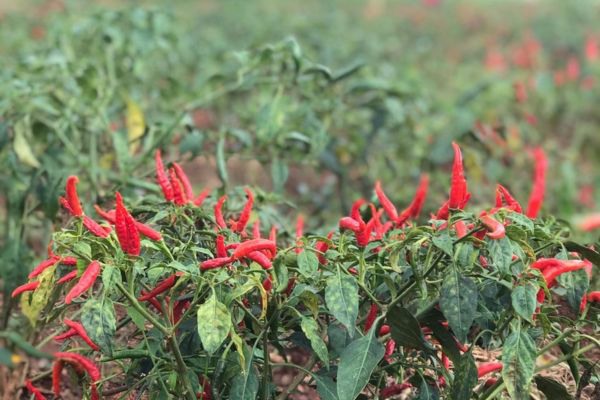Chili pepper volumes in Rwanda are on the rise, with both domestic and foreign demand being strong, says Mr. Jean-Claude Niyomugabo, co-founder of Speke Farms.

Chili cultivation in Rwanda benefits from a favorable climate and stable sanitary conditions, explains Jean Claude: "Chili production in Rwanda is good, especially for varieties like Bird's Eye, which is tolerant to viruses and False Coddling Moth (FCM). The weather and climate in Rwanda are favorable for the growth of chili, which needs a good water supply. Phytosanitary conditions are also good, as all chili farms are registered and monitored by the Rwanda Inspection, Competition, and Consumer Protection Authority (RICA). However, in some areas, the Habanero variety is susceptible to PVY and FCM, making it difficult to grow in the field. In the greenhouse, however, it is well maintained, controlled, and produces well."
Rwanda has recently joined the club of fresh produce exporting countries after starting to export in big volumes only ten years ago. The experience effect is therefore still upwards, says Jean Claude: "The experience of farmers is growing, and so grows the yield. This allows us to increase the number of peppers year after year. This season again, we will have more volumes compared to last season. The quality of the peppers is excellent, as only chemicals authorized in the EU market are used. The size is also good, with a packability over 90%."
 In terms of demand, Rwandan chili has found a place in certain markets, such as Germany and the UK, where it is recognized as a privileged origin. Jean Claude adds: "Rwanda has the advantage of being able to produce chili all year round as there is no winter season. This gives us a competitive advantage in the market over other chili producers such as Spain."
In terms of demand, Rwandan chili has found a place in certain markets, such as Germany and the UK, where it is recognized as a privileged origin. Jean Claude adds: "Rwanda has the advantage of being able to produce chili all year round as there is no winter season. This gives us a competitive advantage in the market over other chili producers such as Spain."
Domestic demand is also important, although there is a shift in the varieties and qualities offered on the local market, according to Jean Claude: "This season, the demand for chilies is high, and both the export and local markets are doing well. The local market generally prefers yellow peppers, but since demand is high, our grade 2, which does not meet export specifications, is consumed entirely by the local market."
In terms of prices this year, they have been on the rise: "The farm gate price for fresh produce is RWF 2,500 (≈ 2 EUR) per kg, which is a significant increase over last year's prices."
For more information:
Jean Claude Niyomugabo
Speke Farms
Tel.: +250 787 310 249
Email: contact@spekefarms.com
www.spekefarms.com
